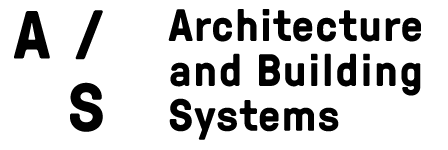FCL / MuSES – Multi-Scale Energy Systems for Low-Carbon Cities
Duration /
2016-2020
Funding /
Singapore ETH Centre for Global Environmental Sustainability
National Research Foundation Singapore
A/S Team /
J. Fonseca, S. Hsieh, G. Happle, Z. Shi, A. Schlueter
Key Partner /
Prof. Dr. Francois Maréchal, EPFL Lausanne
Demonstrator /
City Energy Analyst
Selected Publications /
1 / J. Fonseca, T.-A. Nguyen, A. Schlueter, F. Marechal. "City Energy Analyst (CEA): Integrated framework for analysis and optimization of building energy systems in neighborhoods and city districts," in: Energy and Buildings, 113 (2016a): 202–226. DOI Research Collection
2 / J. Fonseca, D. Thomas, A. Willmann, A. Elesawy, A. Schlueter. "The City Energy Analyst Toolbox V0.1," in: SBE 2016 – Expanding Boundaries: Systems Thinking in the Built Environmnent Vol. 17 (2016b) 1–6. Zurich: ETH Zurich. DOI Research Collection
As part of the Future Cities Laboratory Program (FCL) at the Singapore-ETH Centre, the project ‘Multi-scale Energy Systems for Low Carbon Cities’ (MuSES) aimed at identifying future demand and low carbon supply systems (thermal, electrical) for mixed-use, high-density city quarters with special focus on leveraging synergies between urban development, urban design and energy systems for the efficient and sustainable supply. This entailed:
Identifying quantities and qualities of building energy demand dependent on development scenarios and dynamic use patterns.
Modelling, analyzing and optimizing energy systems for efficient and sustainable supply (electricity, cooling/dehumidification).
Developing synergetic scenarios using spatial and programmatic data.
Analysing and evaluating energy systems behaviour in order to achieve robustness and resilience.
Translating energy system designs into supply network and synthesis with urban morphologies.
MuSES explored the interactions between urban and energy systems design from the building to the district scale. This is especially relevant in the Southeast Asian context, where urbanization is rapid and highly dense, and mixed-use urban typologies are common. To address this, MuSES expanded the Low-Exergy approach under research in the first phase of Future Cities Laboratory in three directions:
System / Expanding the systems approach for highly efficient building RES and HVAC technologies.
Scale / Extending the scope of energy and climate systems from building to district scale.
Synergy / Exploring interactions and synergies of multi-scale energy systems with urban development and design.

